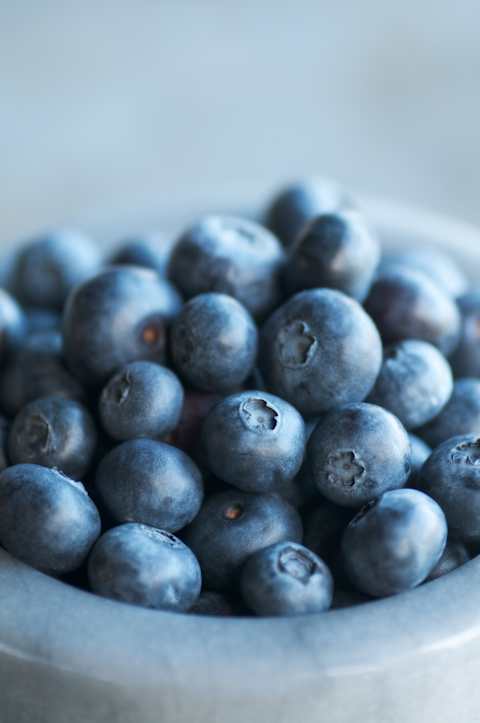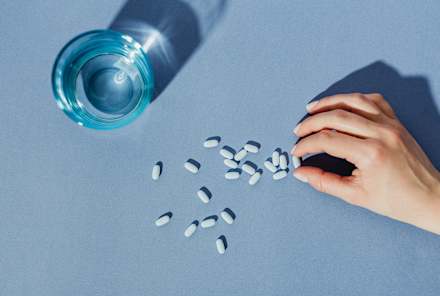Advertisement

It's well-known that our diet can have a big influence on the health of our gut, but did you know it can make lasting changes in as little as three days? It's true! In fact, the life span of a microbe is about 20 minutes, so a lot can happen in three days.
The three-day rule came from a groundbreaking study published in the journal1 Nature1 that showed that when 10 people drastically changed their diet, by day three they had made significant changes in the type of bacteria and the number of bacteria in their GI tract. The changes were not subtle; they saw not just a variation in the types and amounts of bacteria but also in the kinds of genes they were expressing.
In the same study, they also found that food-based bacteria (in fermented or aged food) was surprisingly resilient, making it all the way to the gut to influence the microbial environment. This study, along with many others, shows that if we drastically change our diet, we can drastically change our gut bacteria.
The best foods to eat to reset your gut.
Naturally, the next question we're all asking is: What changes in our diet should we make? These are certain elements in the diet that can produce significant change in gut health, so the basic premise of eating for your microbiome is to include four types of foods (as well as spices) every day. These might seem random at first, but there's a very specific reason each of them is on your plate each day:
1. Broccoli and artichoke
The broccoli and artichoke are essential for the gut, and while you can substitute other cruciferous vegetables, these are the ones I recommend often for plant-based fiber. The type of fibers in these foods actually act as food for the good gut bacteria. Keep in mind that people who are not used to large amounts of vegetables will need to start out slowly, eating small amounts at a time spread out over the course of the day. Otherwise, the gut bacteria can get overwhelmed.
2. Healthy fats
Healthy fats like avocado have also been shown to be beneficial2 for the gut both for their fiber content and fatty acid profile.
3. Fermented foods
Fermented foods are a huge part of this three-day reset, which is why miso, sauerkraut, and pickles are all great foods to include. Study after study has shown that food-based probiotic bacteria is hardy and does not get degraded by the time it gets to the colon. So add as many fermented foods as you can tolerate in those three days.
4. Leafy greens
Leafy greens like spinach, Swiss chard, or arugula contain fiber, and they are easily digestible by the gut.
5. Spices
Certain spices like turmeric, cumin, cinnamon, and even saffron have been shown to be anti-inflammatory and great for gut health.
Since we're trying to reset the gut and activate autophagy—a process where the cells clean house, getting rid of old and damaged materials in order to look and feel younger—it's a great idea to fast for at least 16 hours one of these three days. Intermittent fasting can give the gut a rest and improve hormone and bacterial balance.
Exactly how to reset your gut in three days.

Now we know what foods to focus on during our three-day gut reset, but it can be hard to imagine what this looks like in real life.
After 12 hours of fasting, enjoy coffee with almond milk and a sprinkle of cinnamon (optional cardamom) with 1 cup of blueberries or blackberries with a serving of raw or soaked almonds. For lunch, have sautéed spinach and mushrooms with a sprinkle of turmeric, black pepper, and cumin. For an afternoon snack make sautéed broccoli with tempeh or miso and 1 cup of artichoke hearts. And finally, for dinner enjoy a sliced avocado with cooked black beans, plantain chips, or sweet potato chips. Top with fresh salsa! If you're in the mood for a little dessert, have one serving of dark chocolate (70 percent cacao or more).
On day two, repeat the same foods from day one but leave 16 to 18 hours between dinner and breakfast the next day to activate autophagy. Only clear liquids are allowed during the fast, but this includes black tea or coffee, herbal tea, water, and bone broth. On day three, leave a 12-hour window between breakfast and dinner.
When it comes to gut health, it's about more than just food.
Each day during the cleanse, make sure you're getting plenty of sleep and drinking 80 to 100 ounces of water. Yoga exercises that target the gut—like a seated twist on both sides along with a manual gut massage should be done every day as well. Here's how to do it:
- Make your two hands into fists.
- Put them on your hips.
- Then move them on to your abdomen, and move them in a clockwise fashion five times.
- Then move them counterclockwise five times.
- Then move your fists closer to your belly button and repeat.
- The pressure should be firm but not painful. If there is severe pain, then stop, and you need to see an M.D.
As you might have noticed, I purposely left out grains, dairy, and sugar (except for the dark chocolate) from your three-day plan. These are common inflammatory foods and can be hard on the gut.
It's important to remember that while you can make significant changes in your gut health in three days, achieving overall optimal health is something that typically takes much longer than that. No magic pill, diet, or health change can replace consistent healthy choices in the long term. This three-day jump-start is just a great way for you to get on the right path. In fact, if we checked your microbes after three days, you would notice that you have many more protective bacteria than you started with.
Ready to prioritize your gut health? Take our elimination diet class.

Amy Shah, M.D. is a double board certified MD with training from Cornell, Columbia and Harvard Universities. She was named one of mindbodygreen's Top 100 Women In Wellness to Watch in 2015 and has been a guest on many national and local media shows. She helps busy people transform their health by reducing inflammation and eating more plants. As an immunologist she realizes the power of the microbiome to help digestion, natural hormone balance and food sensitivities.

Amy Shah, M.D. is a double board certified MD with training from Cornell, Columbia and Harvard Universities. She was named one of mindbodygreen's Top 100 Women In Wellness to Watch in 2015 and has been a guest on many national and local media shows. She helps busy people transform their health by reducing inflammation and eating more plants. As an immunologist she realizes the power of the microbiome to help digestion, natural hormone balance and food sensitivities.
Watch Next
Enjoy some of our favorite clips from classes
Enjoy some of our favorite clips from classes
What Is Meditation?
Mindfulness/Spirituality | Light Watkins
Box Breathing
Mindfulness/Spirituality | Gwen Dittmar
What Breathwork Can Address
Mindfulness/Spirituality | Gwen Dittmar
The 8 Limbs of Yoga - What is Asana?
Yoga | Caley Alyssa
Two Standing Postures to Open Up Tight Hips
Yoga | Caley Alyssa
How Plants Can Optimize Athletic Performance
Nutrition | Rich Roll
What to Eat Before a Workout
Nutrition | Rich Roll
How Ayurveda Helps Us Navigate Modern Life
Nutrition | Sahara Rose
Messages About Love & Relationships
Love & Relationships | Esther Perel
Love Languages
Love & Relationships | Esther Perel


















